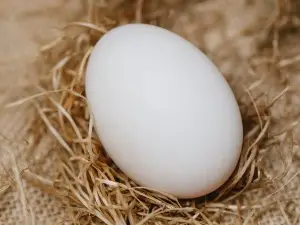
Waiting for your egg to hatch can be both exciting and nerve-wracking. Some chicks will pip and hatch quickly, others will pip and hatch much later on. So, what should you do if your egg has pipped but there is no movement? This article looks into it
If your egg has pipped but has no movement, and it has been 24 hours since the last pip, then you may have to assist with hatching.
Table of Contents
Egg pipped but no movement
Leaving eggs to hatch naturally is ideal. Human intervention during the hatching process can be very dangerous for your young chicken. But what about the birds that may die without human intervention? The article below explores when to take action and what to do.
Why the bird stopped pipping, when to be worried:
Hatching can be quite an exhausting process for chicks. These birds have lived a pretty relaxed life for the past 3 weeks, suddenly having to break out of their shells can be exhausting for them, some don’t make it.
A bird may start to pip then stop when it gets too tired
You should start to worry if the egg hasn’t peeped, pipped, and hasn’t moved in about 24 hours or so. If the bird’s movements are getting weaker then this is also a cause for concern.
Slower and less energetic movements may mean that the bird is simply too exhausted to continue to hatch without any help. The bird may stop moving completely if it gets tired enough.
If there is no movement coming from the egg for 24 hours then you may have to help the bird out by assisting the bird with hatching.
How long after an egg has pipped should it hatch?
Eggs can take up to 24 hours to hatch after the initial pip. Some chicks will start pipping and won’t stop until they are fully hatched, this can take a few minutes.
Other chicks may start to pip, and only get back to pipping after 24 hours, they will then pip and zip until fully out This can happen within minutes of the second pipping session.
Time can help you determine if the bird is doing fine or if it needs some assistance. Make sure that you keep an eye on your eggs and know how long it’s been since the first pip.
The egg may still be absorbing some of the egg yolk or blood vessels while in the egg, even after it has first pipped. Disturbing eggs can disrupt this process, disturbing the bird before the chick has finished absorbing can lead to issues later on.
When to help an egg hatch:
If it’s been 24 hours since the bird started to pip:
It usually takes up to 24 hours for a chick to hatch after the first pip. If the bird is not moving after 24 hours then it may be too exhausted to carry on without your help.
When the inside looks damp:
If you look into the egg, through the pipped hole in the eggshell, the egg should be damp before you try to help.
If the inside is wet then the bird may have not absorbed the yolk and the blood vessels well enough, if the inside is too dry then the bird can get stuck on the shell and won’t be able to hatch.
When you know what to do:
Not knowing how to properly hatch a chick can result in you killing the bird. Before you decide to do this, make sure that you are absolutely sure that you know what you’re doing.
Watching videos online can be helpful when learning how to hatch a chick.
FAQ:
Can eggs hatch without turning?
While an egg that has not been turned may still hatch, the chances of an unturned egg hatching are very slim
If an egg is not turned, the embryo will stick to one side of the egg, and this will increase the chances of embryo death and a non hatch.
What is dry hatching?
Dry hatching involves not adding any additional water to the incubator, as long as the humidity in the incubator stays at 15 percent throughout
That being said, the humidity in the incubator still needs to be increased to 65-70% during the last three days of incubation
Conclusion
In conclusion, hatching can be quite exhausting for chicks. These birds can take up to 24 hours after the first pip to completely hatch out of their shells.
If your bird has pipped but there is no movement, or if the moment has decreased and the peeping is getting weaker, then you may have to assist the bird hatch.
If you enjoyed this article then you may also be interested in other chicken related articles. Here are some articles that you may be interested in: Chick Hatched With Yolk Sac Attached, Chick Hatched With Something Attached, Chick Hatched Too Early,

